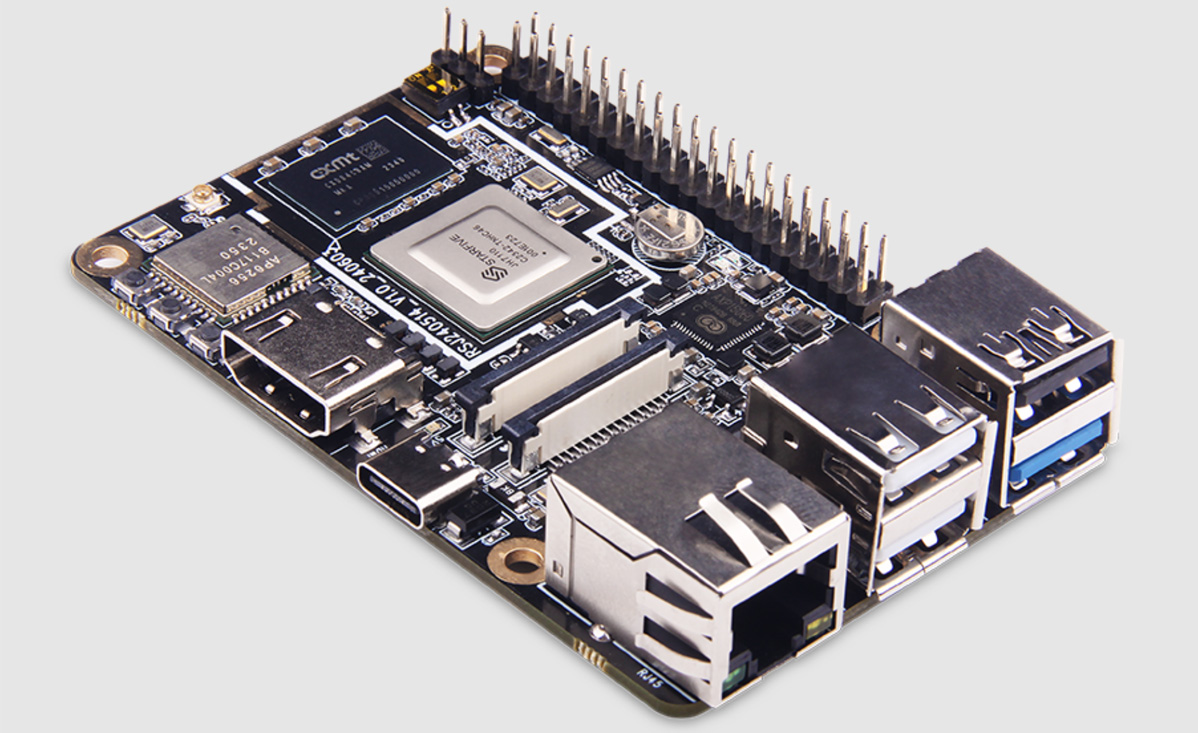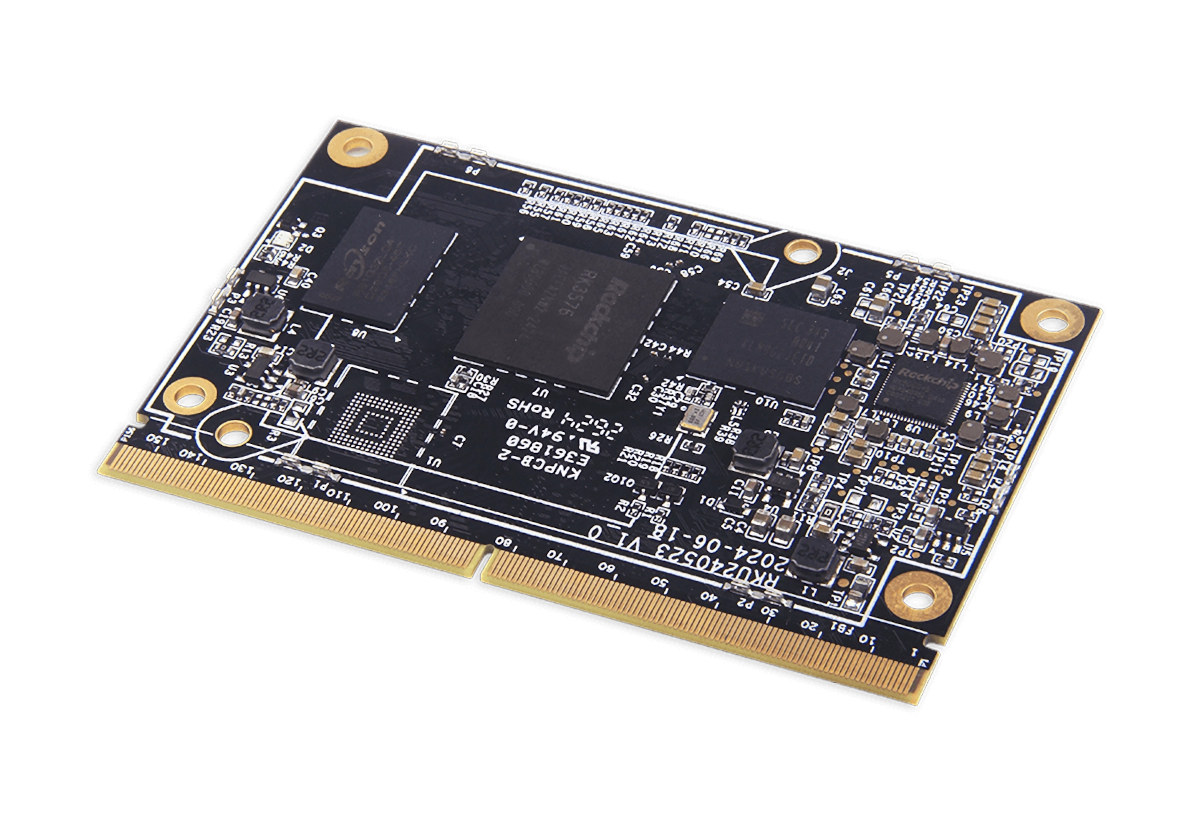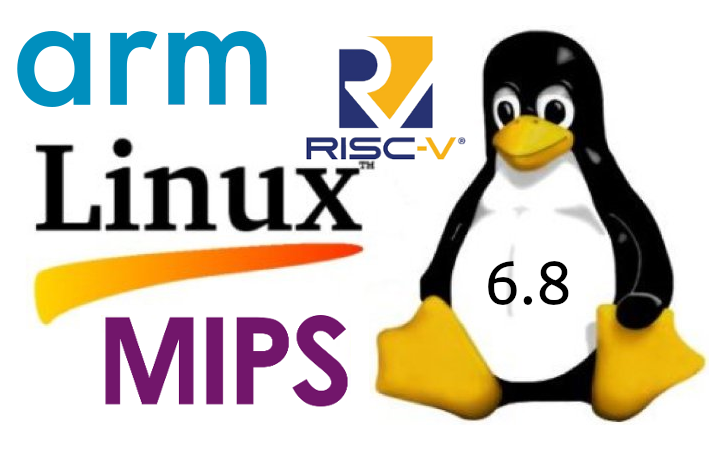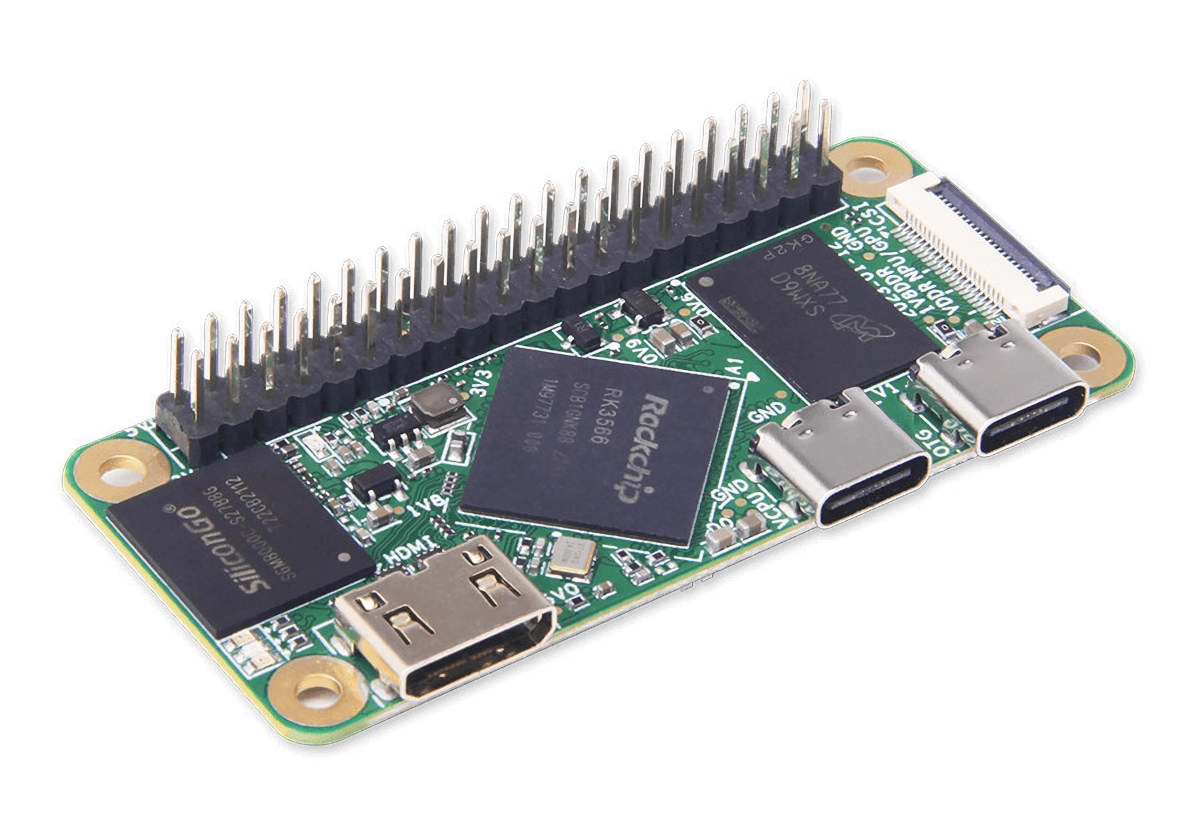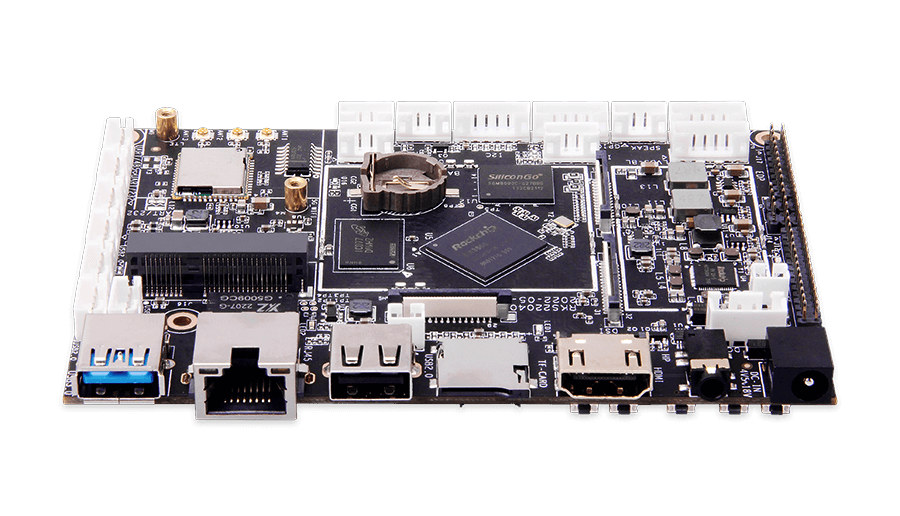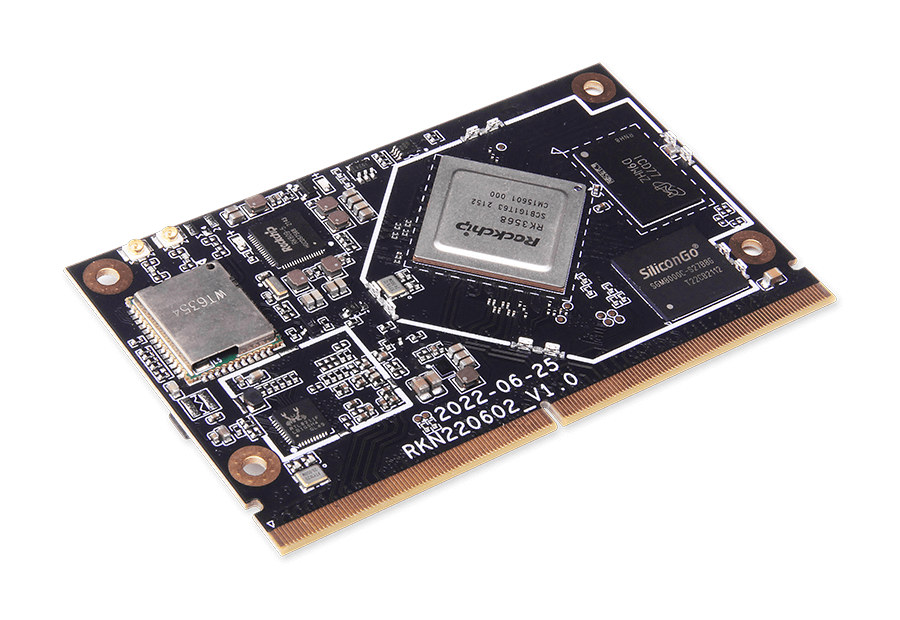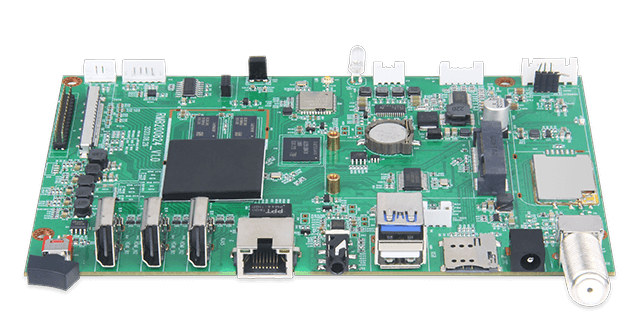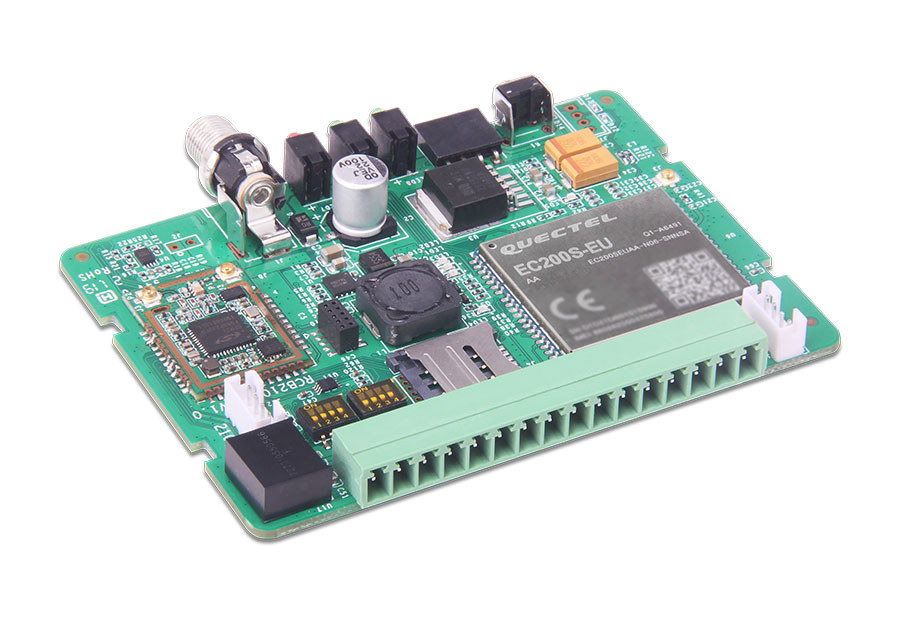Geniatech XPI-7110 is a RISC-V single-board computer (SBC) built on StarFive JH7110 with a form factor similar to that of a Raspberry Pi 3 and equipped with up to 8GB of RAM, 256GB of eMMC storage. It comes with various I/O options including USB ports, HDMI 2.0, GbE Ethernet, Wi-Fi/BT, GPIO, camera, display, and much more. The company also mentions that the board will be available in both commercial and industrial variants and will include a 10+ year lifecycle The new Geniatech board is very similar to the Milk-V Mars that we wrote about a few months ago. Additionally, we have written about PineTab-V, Pine64 Star64 SBC, and Milk-V Meles SBC all of which are built around the StarFive JH7110 or T-Head TH1520 RISC-V SoC, feel free to check those out if you are interested in the topic. Geniatech XPI-7110 SBC specifications: SoC – StarFive JH7110 CPU – Quad-core RISC-V processor […]
Geniatech SOM-3576 – A Rockchip RK3576 system-on-module with a 314-pin MXM 3.0 edge connector
Geniatech SOM-3576 is another system-on-module (SoM) powered by Rockchip RK3576 octa-core Cortex-A72/A53 AI SoC but with a 314-pin MXM 3.0 edge connector to expose I/Os. It follows other RK3576 SoMs like the Boardcon CM3576 with castellated edges and the Forlinx FET3576-C with board-to-board connectors. The SOM-3576 module supports up to 16GB RAM, and 256GB eMMC flash, and comes with a Rockchip PMIC. I can also see a footprint for 512GB or 1TB UFS storage as Firefly did on the Firefly ROC-RK3576-PC single board computer. Geniatech SOM-3576 specifications: SoC – Rockchip RK3576 CPU 4x Cortex-A72 cores at 2.3 GHz, 4x Cortex-A53 cores at 2.2 GHz Arm Cortex-M0 MCU at 400MHz GPU – ARM Mali-G52 MC3 GPU with support for OpenGL ES 1.1, 2.0, and 3.2, OpenCL up to 2.0, and Vulkan 1.1 NPU – 6 TOPS (INT8) AI accelerator with support for INT4/INT8/INT16/BF16/TF32 mixed operations. VPU Video Decoder – H.264, H.265, VP9, […]
Linux 6.8 release – Notable changes, Arm, RISC-V, and MIPS architectures
Linus Torvalds has just announced the release of Linux 6.8 on the Linux kernel mailing list: So it took a bit longer for the commit counts to come down this release than I tend to prefer, but a lot of that seemed to be about various selftest updates (networking in particular) rather than any actual real sign of problems. And the last two weeks have been pretty quiet, so I feel there’s no real reason to delay 6.8. We always have some straggling work, and we’ll end up having some of it pushed to stable rather than hold up the new code. Nothing worrisome enough to keep the regular release schedule from happening. As usual, the shortlog below is just for the last week since rc7, the overall changes in 6.8 are obviously much much bigger. This is not the historically big release that 6.7 was – we seem to […]
Geniatech XPI-3566-ZERO – A Rockchip RK3566 SBC that follows Raspberry Pi Zero form factor
Geniatech XPI-3566-ZERO is a Rockchip RK3566 powered single board computer (SBC) that provides an alternative to the Raspberry Pi Zero 2W with a more powerful quad-core 1.8 GHz Arm Cortex-A55 processor, support for 4Kp60 video playback and output, WiFi 5 and Bluetooth 5.0, a built-in eMMC flash, and so on. Geniatech XPI is a family of SBCs that closely follows the design of various Raspberry Pi boards, and after introducing the Raspberry Pi 3 Model B-sized XPI-3566 board last year, the company has now designed a more small Rockchip RK3566 SBC that follows the Raspberry Pi Zero form factor. Geniatech XPI-3566-ZERO specifications: SoC – Rockchip RK3566 quad-core Cortex-A55 processor @ up to 1.8 GHz with Arm Mali-G52 2EE GPU, 1 TOPS AI accelerator System Memory – 512MB LPDDR4 (up to 8GB optional) Storage – 8GB eMMC flash (up to 128GB optional) Video Output – mini HDMI 2.0 up to 4Kp60 […]
Geniatech DS-3566 digital signage board is powered by a Rockchip RK3566 SoC
Geniatech DS-3566 is a board based on Rockchip RK3566 designed for digital signage applications with a low-profile, multiple video interfaces such as HDMI, LVDS, eDP, and MIPI DSI, and plenty of headers and connectors for expansion. The single board computer ships with up to 8GB RAM, 128GB eMMC flash, and supports Gigabit Ethernet, WiFi 5, Bluetooth 4.1, as well as cellular connectivity as an option. Some of the interfaces available through connectors include RS232, RS485, CAN Bus, I2C, SPI, etc… Geniatech DS-3566 specifications: SoC – Rockchip RK3566 quad-core Arm Cortex-A55 processor @ 1.8 GHz with Arm Mali-G52 EE GPU, 0.8 TOPS NPU System Memory – 2GB to 8GB LPDDR4 Storage – 16GB to 128GB eMMC flash, MicroSD card slot Video Interfaces 1x HDMI 2.1 up to 4Kp60 1x LVDS header and backlight header 1x eDP header and backlight header 1x 4-lane MIPI DSI connector Camera – 1x 4-lane MIPI CSI […]
Geniatech unveils SMARC 2.1 compliant Rockchip RK3568 system-on-module
We’ve seen Rockchip RK3568 system-on-modules before, but the Geniatech SOM-3568-SMARC core board is the first to comply with the SMARC 2.1 standard with a 314-pin MXM connector exposing the many I/Os from the quad-core Cortex-A55 processor. The module comes with up to 8GB RAM, 128GB eMMC flash, integrates a WiFi and Bluetooth module as well as two Gigabit Ethernet transceivers, and is designed to be used in advanced NVRs, cloud terminals, industrial automation, IoT applications, digital signage, and more. Geniatech SOM-3568-SMARC specifications: SoC – Rockchip RK3568 quad-core Cortex-A55 processor @ 2.0 GHz with Arm Mali-G52 2EE GPU with support for OpenGL ES 1.1/2.0/3.2, OpenCL 2.0, Vulkan 1.1, 1 TOPS NPU for AI acceleration, 4Kp60 H.265/H.264/VP9 video decoding, and 1080p100 H.265/H.264 video encoding; 22nm process System Memory – 2GB, 4GB or 8GB DDR4 Storage – 32GB, 64GB, or 128GB eMMC 5.1 flash Networking 2x RTL8211F Gigabit Ethernet PHY WT6354 wireless module […]
Geniatech DB982 – An 8K TV motherboard with Amlogic T982 CPU, ATSC 3.0 TV tuner
Geniatech DB982 is a development board/motherboard powered by an Amlogic T982 quad-core Cortex-A55 processor designed for 8K televisions and equipped with an ATSC 3.0 TV tuner. The board ships with up to 4 GB RAM and up to 128 GB eMMC flash, and also includes three 4K HDMI inputs, LVDS and ultra-high-definition VX1 LCD screen interfaces, as well as Fast Ethernet and WiFI 5 connectivity. Geniatech DB982 specifications: SoC – Amlogic T982 CPU – Quad-core Arm Cortex-A55 processor up to 1.8GHz GPU – Arm Mali-G52 MP2 (2EE) GPU supporting OpenGL ES 3.2, Vulkan 1.1 and OpenCL 2.0 APIs AI accelerators – 2x NNA accelerators with INT8 inference performance up to 2.6 TOPS Manufacturing process – 12nm System Memory – 2GB (4GB optional) Storage – 16GB eMMC flash (8 to 128GB optional) Video Output 1x VX1 up to 8K resolution (CNXSoft: I suppose it stands for V-By-One interface) 1x 30-pin […]
Wireless M-Bus & LTE Cat 1 sensor board also supports Zigbee 3.0, Z-Wave, Bluetooth LE 5.0, LoRa…
Geniatech SCB32IM is a sensor board based on Silicon Labs EFR32FG14 Arm Cortex-M4 microcontroller with a sub-GHz radio enabling wireless M-Bus (Wireless Meter Bus) designed for remote reading of smart meters, and also equipped with a Quectel EC200S “IoT/M2M-optimized” LTE Cat 1 module. The sensor module does not actually come with any sensor on board, but provides a terminal block to connect any sensor you may need for your product. It’s also possible to extend wireless connectivity options with Zigbee 3.0, Z-Wave, Bluetooth LE 5.0, LoRa, and more through the GT-IoT interface with UART, SPI, and one GPIO. Geniatech SBC32IM specifications: Microcontroller – Silicon Labs EFR32FG14 Aem Cortex-M4 MCU @ 40MHz with up to 256 KB flash, 32 KB RAM, and proprietary 2.4GHz and sub-GHz radios Wireless connectivity Wireless M-Bus S Mode: 868 MHz band T Mode: 868 MHz band C Mode: 868 MHz band N Mode: 169 MHz band […]


